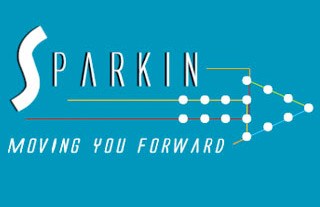Adaptability = Career Success (Revisited)
You have great intellect and many would describe you as emotionally very smart, a natural people person.Excellent capabilities to have in a very rapidly morphing business environment. But what’s your AQ like? I’m referring to ‘Adaptability Quotient.’ How capable you are at adapting? How well do you ‘do’ change? Because sooner or later, however good a job you do, ‘change’ is coming our way.
‘A 2020 Harvard Business School survey showed that 71% of 1500 executives from more than 90 countries said that they believed that adaptability was the most important quality they looked for in a leader. And data from a 2021 McKinsey study revealed that people proficient in adapatbility were 24% more likely to be employed.’ (BBC)
What’s your AQ – Try a short test.
In 2018 I wrote about the importance of adaptability for your career success. (See below.) At the time there appeared to be a big discrepancy between how employers and employees viewed its importance, 91% and 53% respectively. But no more.
While most of you would be prepared to change, many struggle with it. So what makes us good dealing with change, all other factors being constant, I’ll suggest a few:
1. Your level of optimism. If you’re optimistic you’re more likely to believe there’s a solution – Expect to be tested for your ‘OC’ or Optimism Quotient very soon!
2. Life experience – The more changes you’ve already experienced, the better able you are to manage new change. e.g.Meditation
3. Coping mechanisms – Which help you deal with stress/help keep a clear mind to best deal with the change.
4. Support network – This could be within or outside work.
5. Organisational skills – No doubt about it, the better organised someone is, the more able they are to multi-task if not outright change what they are doing.
What else would you include?
All the best,
Stuart
Identifing an Employer Who Values Strategy/Planning
When you’re in demand, you might be told things that don’t entirely resemble the reality of the culture or the work/It’s not always straightforward knowing whether a would-be employer, truly values what you do.
Below are some questions (open-ended typically provide more information for you) that I’m sure many of you ask, but there might be one or two that you don’t, that could get the clarity you need.
Q’s about department size/growth/effectiveness
What is the ratio of strategists to employees?What has been the principal cause of the growth of the function (strong leader, client demand, other)Does the business enter/and or win effectiveness awards?
Q’s about the seriousness with which strategy is taken.What role does the CSO play as part of the leadership team?How does the CSO or other department head, advocate for planning?Q’s about training/development What off-the-job training is offered to strategists in addition to on-the-job training?How is mentoring carried out for strategists?
Q’s about work process Is there an ECD sign-off for a brief/Is strategy a core part of getting to great creative work
Q’s about agency outputs and the role of strategy to deliver themWhat types of pure strategy projects do clients request?Can you provide examples of the types of projects clients request? Typically how long are these engagements?
Q’s about business development and the role of strategyHow involved are strategists in the process of pursuing new clients?
Q’s about clients/How they value strategyDo clients request strategy or is this something the agency insists on as part of its process?Are there any clients requesting not to have strategic input? If so, why?What do clients see as the role of strategists?
Q’s about creative outputHas most if not all work that has won creative awards been based on strategic input?And a few others:What are the biggest challenge for strategic work here?How many strategists have worked on this account in the last year?/Since the agency had the account?What is the turnover rate for strategists here/For the agency in general?
What other questions would you ask to know whether the job on offer was a career-defining one for a strategist?
All the best,Stuart
Identifying An Employer That Value’s Strategic Planners
When you’re in demand, you might be told things that don’t entirely resemble the reality of the culture or the work/It’s not always straightforward knowing whether a would-be employer, truly values what you do.
Below are some questions (open-ended typically provide more information for you) that I’m sure many of you ask, but there might be one or two that you don’t, that could get the clarity you need.
Q’s about department size/growth/effectiveness
What is the ratio of strategists to employees?
What has been the principal cause of the growth of the function (strong leader, client demand, other)
Does the business enter/and or win effectiveness awards?
Q’s about the seriousness with which strategy is taken.
What role does the CSO play as part of the leadership team?
How does the CSO or other department head, advocate for planning?
Q’s about training/development
What off-the-job training is offered to strategists in addition to on-the-job training?
How is mentoring carried out for strategists?
Q’s about work process
Is there an ECD sign-off for a brief/Is strategy a core part of getting to great creative work
Q’s about agency outputs and the role of strategy to deliver them
What types of pure strategy projects do clients request?
Can you provide examples of the types of projects clients request? Typically how long are these engagements?
Q’s about business development and the role of strategy
How involved are strategists in the process of pursuing new clients?
Q’s about clients/How they value strategy
Do clients request strategy or is this something the agency insists on as part of its process?
Are there any clients requesting not to have strategic input? If so, why?
What do clients see as the role of strategists?
Q’s about creative output
Has most if not all work that has won creative awards been based on strategic input?
And a few others:
What are the biggest challenge for strategic work here?
How many strategists have worked on this account in the last year?/Since the agency had the account?
What is the turnover rate for strategists here/For the agency in general?
What other questions would you ask to know whether the job on offer was a career-defining one a strategist?
All the best,
Stuart
Job Security and Career Opportunity – One Key Step
One word I hear much of when talking to clients and candidates today is ‘uncertainty.’ Budgets are being trimmed and with them, jobs.
Whether you have full-time employment or freelance work, fundamental for your career security and success is ‘personal agency,’ defined as
‘Thoughts and actions taken by people that express their individual power.’
Key is having a clear understanding of what you know you want to learn, to achieve, to impact, so that you can proactively work toward achieving these things.
To use the language of creative agencies, write your own ‘brief,’ not for use with creatives, but for anyone that can help you manifest your ambition, your goals.
The best strategists have a clear sense of agency and so do things ‘on purpose!’ Those that struggle, are often either passive, reactive or their efforts to bolster their job prospects are intermittent.
Relying on your boss, your work, even your reputation to secure your existing role or a new one, ignores the champion of success, proactivity, on and off the job. Reputation/quality work alone should be enough, alas reality tells a different story.
Some steps we can all take to enhance our own security and opportunity are outlined below. Think about these in the context of your own agency, passive or proactive or perhaps, haphazard.
Enhancing your chances of Job/Work security:
1. Stay close to the money/cashflow –
2.Be easy to work with
3.A all times, be proactive, known to be the bearer of solutions if not, fresh ideas.
4. Value add beyond your own work – Enhance team effectiveness or the culture of the place you work
5. Ensure that those that make decisions know the value you create.
6. Have a strong relationship with clients.
7. Work on the most profitable accounts.
8. Work on accounts where work sees the light of day.
9. Work on accounts where the best creative is delivered.
10. Work on products/services that are more recession-proof.
11. Have an open line of communication to your boss/people that make financial decisions.
12. Focus on your current role but find time to build connections elsewhere.
13. Extrovert/Introvert – Whatever you are, be known for being a positive/’can-do’ person everyone wants around when the going gets tough.
Remember, at the end of the day, it’s not your health (although health insurance is a worry in the U.S.) it’s a job.
Any others, you’d add?
Positive thoughts and hear for you all any time,
S
Freelancing Without a Gameplan
Much advice has been written about how to prepare for freelance, primarily focused on the mechanics. But what about the often-overlooked element, strategic consideration as to how freelance will advance your career? It certainly can if you have a clear perspective on your growth. Key:
Know thyself – Be honest with yourself about your strengths/weaknesses. Freelance work does not have the built-in support structures often available with full-time work.
Your Personality – If you are self-confident, go-getting, happy fronting up, like new business/chasing, that’s good, as you will spend relatively more time hunting compared to full-time.
Preferred Working Style – Freelancers often work on discrete projects, are often kept at arms’ length and don’t see completed work.
Support Networks – If you prefer working solo, perfect. If you don’t, work well without support networks you may struggle.
Tolerance for Uncertainty – The recent freelance landscape has seen an abundance of work but the business landscape is changing. If you have a low tolerance for uncertainty/a real need for steady regular income, freelance might not be optimal.
Work Flexibility – One of the biggest reasons for freelance. But, unless you have a range of clients, you may well end up being beholden and have little more flexibility than when you worked full-time.
Positive Psychology – Unless your life is primarily focused on non-work goals, whether full-time or freelance, a lack of genuine career plan will in time make for real pressure. Alternatively, knowing where you want freelance to take you, will enhance your mental state.
If you feel you are getting the learning/experience you sought when starting to work for yourself, great, what are your next growth areas? If you aren’t learning new things, it might be time to reassess either the work you are taking on or working as a freelancer.
As ever, happy to talk with any of you about the potential career building opportunity that under the right conditions, freelance can deliver.
Job Opportunities 07/22
If you know of anyone looking for full-time or part-time work, some of the below opportunities are full-time and some temp to perm.
- Director Strategy – NY-based creative agency – 190K
- VP Strategy – NY-based healthcare agency – 180-200K
- Freelance – Director level – London creative agency
- SVP Strategic Growth – NJ-based healthcare agency – 250K
Preparing to Freelance
You’ve decided to leave your current job
Growth – On some level you’ve stopped growing so you need to move but, you’re unsure where to work next
Work (and so your life) is out of control – Freelance is the preferred path where you chose what, where and when you will work – This feels like the break and transition you need.
Prepare for Freelance Realities
You don’t always get the work you seek although by definition, if you’re running your own business, this will make you grow! And in terms of control, whilst you chose what you work on, when you do freelance work, this can become all-consuming.
Key Freelance Challenges
Getting Work – In Spring 2022 getting freelance work is not a big challenge/there is plenty of demand. But, with the war in Ukraine, rapidly rising inflation, pandemic uncertainties etcetera, all of these things are bad for business confidence, and with it, there’s the threat that the torrent of freelance now could become a trickle by summer. Before you leave your current job for freelance, consider the following:
Cashflow – Take the pressure off yourself by ensuring you have six months salary in the bank so you have cash flow, so you can enter the freelance world not feeling like you have to have work immediately/be forced to accept work you’d rather not do.
Connections – Getting your first freelance work can feel scary without the safety blanket of existing income. Work your connections/networks so that ideally there is a specific need/freelance to work on already lined up.
Reputation – Those that become long-term freelancers do so for one of two reasons and often both. First, they have a reputation for great work and being straightforward to work with (I can talk at length about this!). Second, those that love the hustle of new opportunities and better, working on pitches, exponentially increase their marketability.
Feeling Excluded – If you haven’t worked for yourself before, this is a common reason why strategists don’t remain freelancing for very long. As a consultant, you are empowered to choose what you work on and are often better paid/per hour. On the flip side, your work is often in isolation, the type of work is often discrete projects which see no obvious output; And be prepared to be treated at arms-length by in-house teams. Key to consider – Know why you’re freelancing! Have a clear sense of what you gain by working for yourself (too often this isn’t thought through) and this will empower you for the inevitable trade-offs that freelancing requires. I’m happy to talk through.
What one piece of advice would you give to those considering freelance?
All the best,
Stuart
Job Opportunities 04/22
If you know of anyone looking for full-time or part-time work, some of the below opportunities are full-time and some temp to perm.
1. Director Strategy – SF-based creative agency, Salary >190K
2. VP Strategy – NY-based healthcare agency, 180-200K
3. .Freelance – Director level – London creative agency
Past Newsletters







